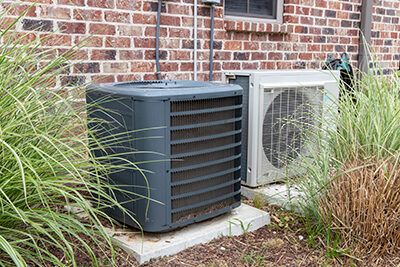El Cajon has mild sunny weather most of the year with high temperatures seldom reaching 90 degrees, and many residents only use their air conditioning for three months in the summer and early fall. However, winter brings colder weather, and the change in seasons, temperatures, winds, precipitation, and humidity can adversely affect your HVAC operations. Here are some common ways that winter weather in California impacts your HVAC system.
Change in Seasons and Temperatures
The change from fall to winter is a gradual one, and you may not have used your heat for months. Suddenly turning on the heat can release debris that has built up in your system. Once released, it can clog your furnace pipes, burners, or ventilation. These blockages can lead to increased energy usage and higher energy bills.
When your HVAC is used during the warmer months, it has to work hard to keep your house cool. As it circulates cooler air through your system and house, your HVAC also accumulates particles, dirt, and debris over time. If you do not use your HVAC for a while during the seasonal transition from fall to winter and you neglect to schedule a maintenance appointment, all of that debris sits in your system and air filters. Once you turn on the heat, existing dust and dirt are released into your ventilation system in addition to that which has already accumulated in the furnace.
This sudden rush of particles can harm your HVAC and air quality. An unclean system does not operate at top efficiency levels. Dirty filters and vents can also make your heating system struggle to keep the house warm. The combined particle buildup and strain can damage your HVAC and its efficiency. These conditions can also lead to increased energy bills.
Winters in southern California can come with rapid fluctuations in temperatures. These 30-degree differences in highs and lows can make your HVAC struggle to keep your home at a comfortable temperature. These temperature fluctuations could prompt your system to push out a sudden increased amount of heat, which stresses the unit. The effects of temperature swings tend to impact older HVAC systems or ones that have not been well-maintained.
Colder temperatures can also adversely affect the air conditioning components of your HVAC system. Colder weather can deteriorate evaporator coils and refrigerant levels. Once impacted, your AC may not work properly and could break down when you start to use it again in the spring and summer. This scenario also occurs most often with older units that have undergone multiple winters.
To help avoid these issues related to season and temperature swings, we recommend that you schedule an HVAC tune-up before the winter sets in. It may also be time to consider upgrading your unit.
Winds, Precipitation, and Humidity
California winters often come with increased winds that can affect your HVAC system. October to March is when the Santa Ana winds usually come to southern California. These hot, dry winds can place a strain on your HVAC system. They can damage the outside portion of your HVAC system or cause parts to loosen.
When winds increase, they can stir up so much dust that they create a blockage in your unit, which will make it harder for your HVAC to move air through the ducts and into your house. Dry, windy conditions can also produce more allergens and impact those in your household with allergies. In this case, both the unit and air filters need to be kept clean.
Increased rains are also part of the winter season in California. Precipitation can cause damage to your HVAC if it gets into the internal parts of your unit, or it can deteriorate the internal wiring. Internal water can also lead to mold and rust in your system, which can lead to reduced and unhealthy airflow. Having your system checked for any cracks or damage both inside and outside helps address these issues.
Increased humidity can also impact your HVAC system by making it work harder. Your heating system responds to the temperature of your house, which can seem cooler with higher humidity. Both homes and humans can feel cooler on a cold day with higher humidity. In reverse, high humidity on a warmer winter day can make your home feel warmer and interfere with the temperature settings. Being aware of these effects, you should monitor your thermostat on days with increased humidity to lessen this impact on your HVAC system.
A heating system that comes on too frequently can lead to higher energy bills and potentially shorten its life span. Heating that is not coming on enough leaves the house colder, and then your HVAC has to work harder to warm it to appropriate levels. An HVAC tune-up visit can help address these issues related to winds, precipitation, and humidity.
Winds and Salty Air
As winds pick up in California, they can push salt air inland that can impact your HVAC system. Salt air builds up and corrodes systems, leading to HVAC deterioration. Increased salt air can occur within 100 miles of the coastline and affect air conditioners, furnaces, and heat pumps.
HVAC corrosion can develop from the combination of saltwater and air that negatively impacts the steel, copper, and aluminum that make up your system. The air condenser and compressor are the most likely parts to be affected by increased levels of salt air because they are located in the outside portion of your unit. Coils and lines that are outside can become rusted or corroded, along with exhaust and ventilation pipes.
An increase in salt air corresponds with an increase in the rate of corrosion to your HVAC system over time. The best solution is to arrange for regular maintenance of your HVAC system. An HVAC maintenance technician checks and cleans your unit to reduce wear and tear from salt air to help get it ready for more winters to come. Long-term exposure to salt air without proper maintenance can lead to a decreased life span for your unit.
Dealing With the Winter
As with winds and salt air, the best way to contend with the other challenges of winter is to have your HVAC system serviced. A maintenance professional will clean and inspect your system to make sure it is ready for the weather changes of winter. Cleaning pipes and filters are among the important preventive maintenance tasks that will allow your HVAC to perform at its best. The HVAC service checklist also includes a full inspection of central parts like the blower motor, belts, and heat exchangers and repairing or replacing damaged components. In addition, during maintenance visits, the technician cleans air vents and condenser coils and replaces air filters. Routine HVAC service will help you avoid small problems that can become larger ones and ensure energy efficiency.
Trusted HVAC Services
Please contact us at Comfort Bros Heating, Air & Plumbing for more information about getting your HVAC system ready for the winter. We provide heating, air conditioning, and air quality services to El Cajon, CA, and the San Diego County area. We are a trusted family of professionals here for all your HVAC needs. Call Comfort Bros Heating, Air & Plumbing today!



